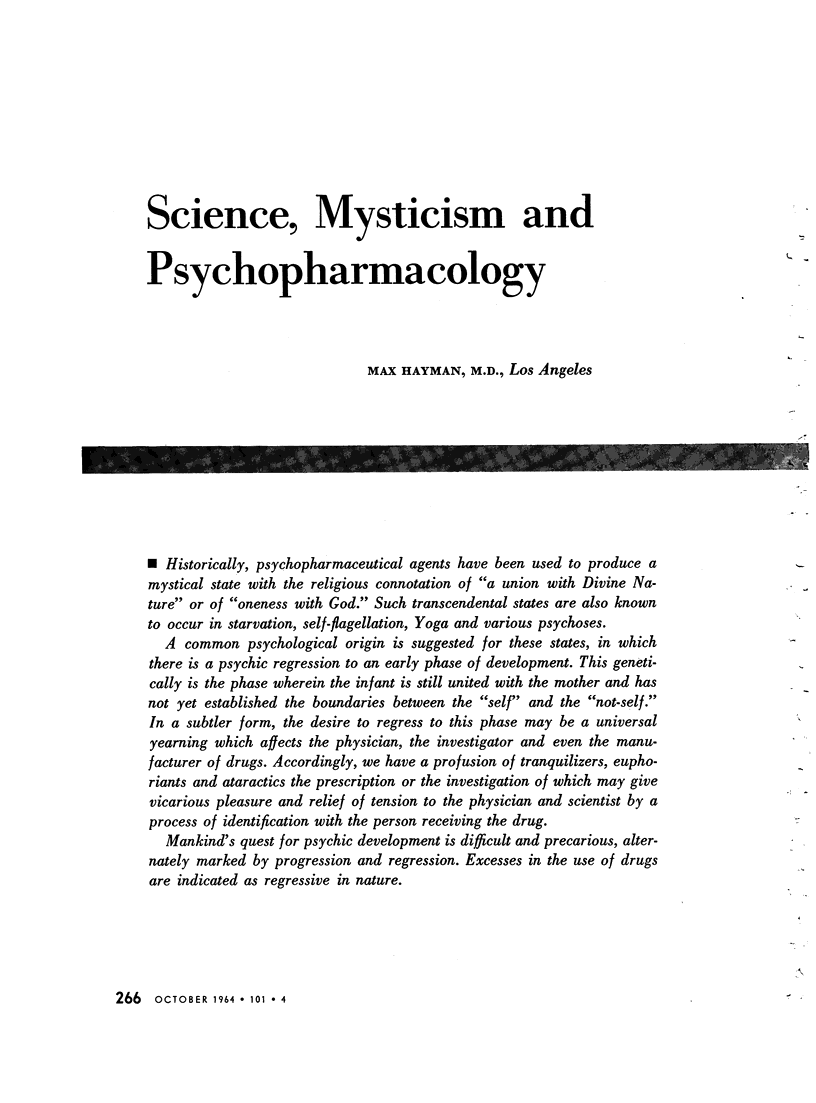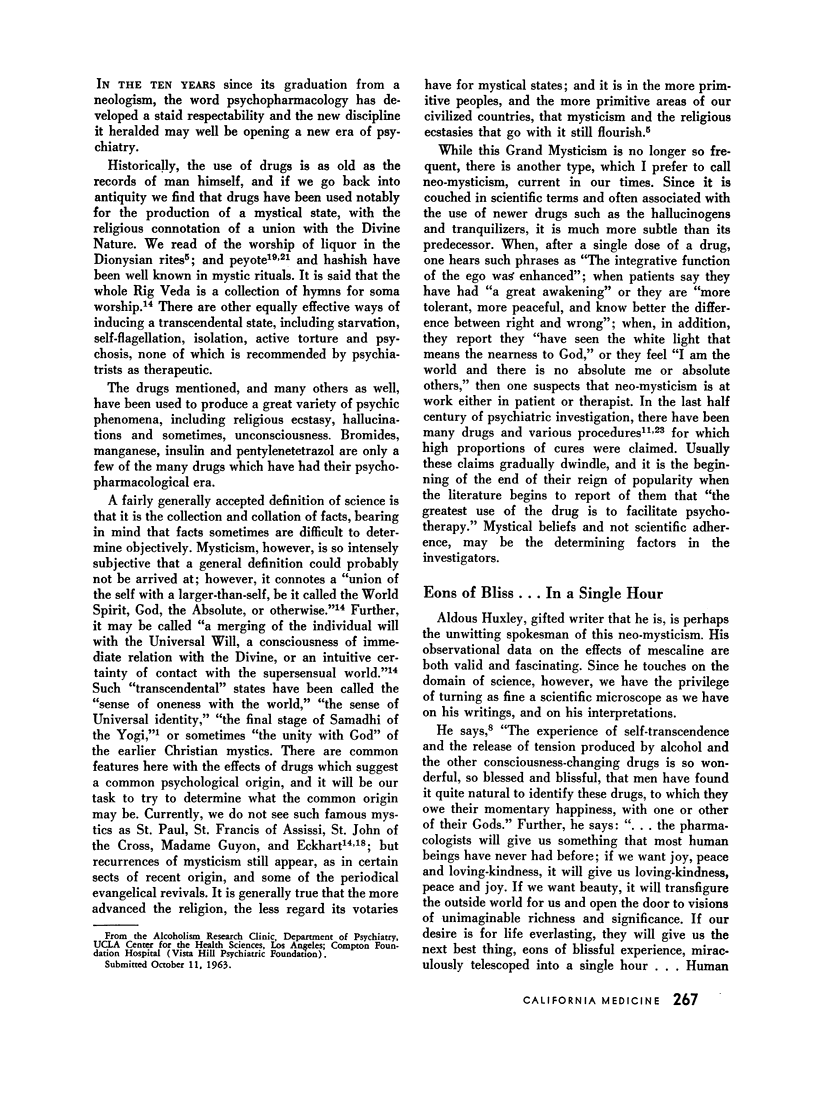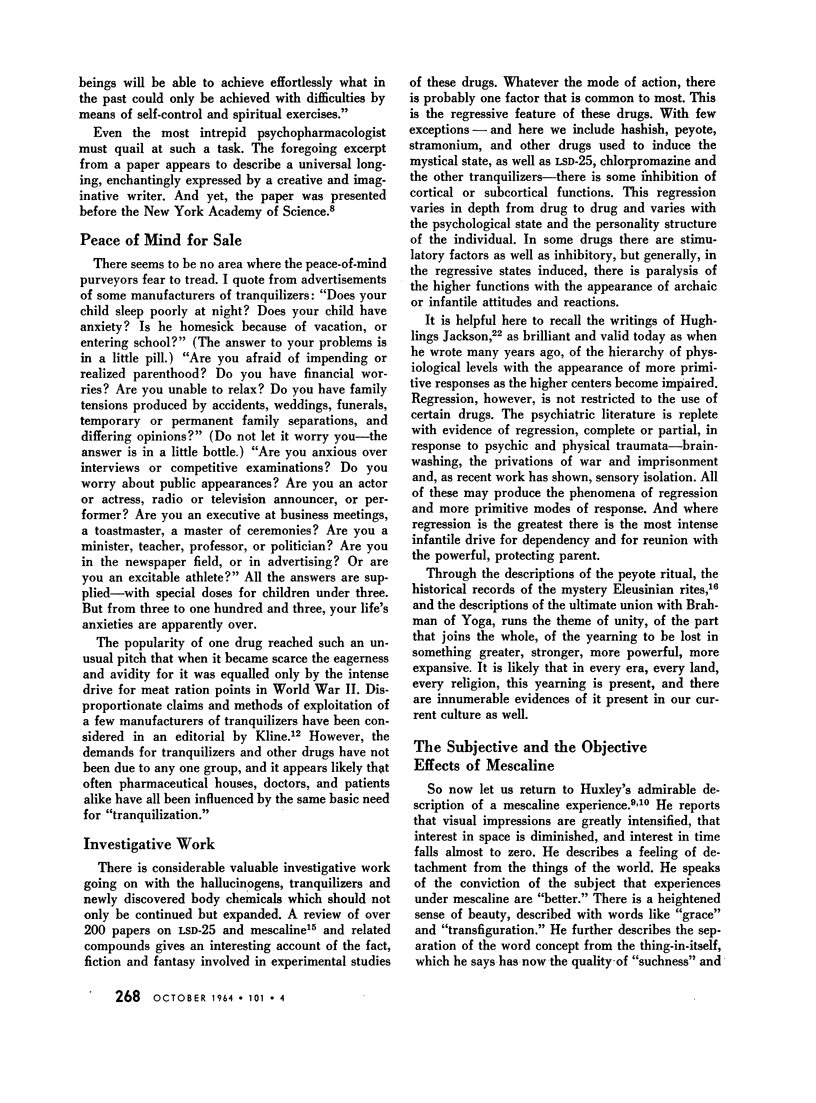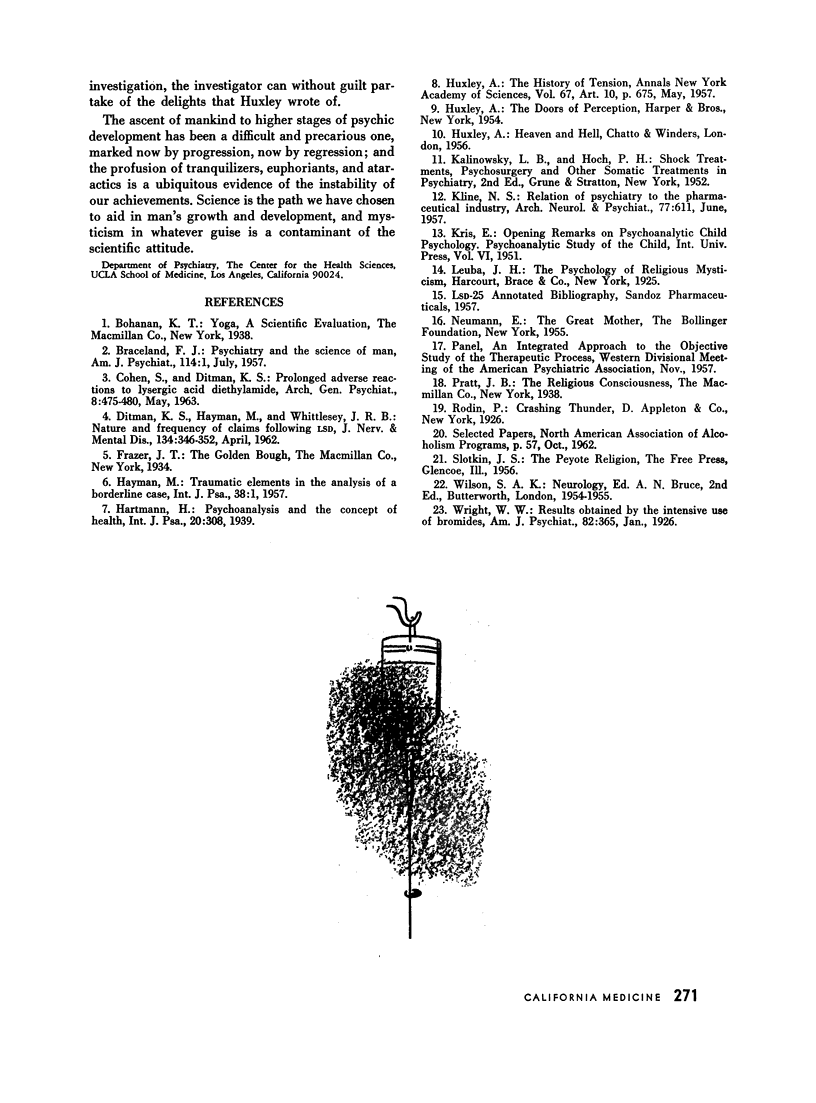Abstract
Historically, psychopharmaceutical agents have been used to produce a mystical state with the religious connotation of “a union with Divine Nature” or of “oneness with God.” Such transcendental states are also known to occur in starvation, self-flagellation, Yoga and various psychoses.
A common psychological origin is suggested for these states, in which there is a psychic regression to an early phase of development. This genetically is the phase wherein the infant is still united with the mother and has not yet established the boundaries between the “self” and the “not-self.” In a subtler form, the desire to regress to this phase may be a universal yearning which affects the physician, the investigator and even the manufacturer of drugs. Accordingly, we have a profusion of tranquilizers, euphoriants and ataractics the prescription or the investigation of which may give vicarious pleasure and relief of tension to the physician and scientist by a process of identification with the person receiving the drug.
Mankind's quest for psychic development is difficult and precarious, alternately marked by progression and regression. Excesses in the use of drugs are indicated as regressive in nature.
Full text
PDF





Selected References
These references are in PubMed. This may not be the complete list of references from this article.
- COHEN S., DITMAN K. S. Prolonged adverse reactions to lysergic acid diethylamide. Arch Gen Psychiatry. 1963 May;8:475–480. doi: 10.1001/archpsyc.1963.01720110051006. [DOI] [PubMed] [Google Scholar]
- HUXLEY A. The history of tension. Ann N Y Acad Sci. 1957 May 9;67(10):675–684. doi: 10.1111/j.1749-6632.1957.tb46005.x. [DOI] [PubMed] [Google Scholar]
- KLINE N. S. Relation of psychiatry to the pharmaceutical industry. AMA Arch Neurol Psychiatry. 1957 Jun;77(6):611–615. doi: 10.1001/archneurpsyc.1957.02330360069007. [DOI] [PubMed] [Google Scholar]


